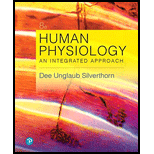
To define: The term immunity.
Introduction: The pathogen is an organism which causes infection and diseases to the host organism. These agents most often degrade the health of an individual. The responses that are generated towards these pathogens are from the immune system present in the body of an individual.
Explanation of Solution
The responses generated against the microorganisms for shielding an organism’s body is called immunity. Vaccination supports the immune system of an organism to develop resistance against a number of diseases. These vaccines may contain live attenuated (or weakened) antigens, killed antigens, subunit of the antigen or toxins of the pathogen.
Thus, the response generated against the microorganisms for shielding an organism’s body is known as immunity.
To explain: The meaning of memory and specificity of the immune system.
Introduction: The property of a body to fight against various disease causing microorganisms and generate an immune response is known as immunity. The small white blood cells which play a major role in immune system of the body are known as lymphocytes.
Explanation of Solution
When an infection occurred inside the body of an organism, the T cells transmit the signal to the B cells to produce antibodies against the antigens. The antibodies produced are highly specific to the pathogens present in the body. Those antibodies interact with the antigens and results in the death of the pathogen. The memory cells are generated in this process to store the information about the specific microbe to prevent the body from infections in the future.
Thus, the antibodies produced are highly specific to the pathogens present in the body and the memory of immune system stores the information about the previous encounter of microorganism to prevent the body from infections in the future.
Want to see more full solutions like this?
Chapter 24 Solutions
Human Physiology: An Integrated Approach (8th Edition)
- Explain the differences between active artificial immunityand passive natural immunity.arrow_forwardDescribe the roles that phagocytic and nonphagocytic cells and plasma proteins such as complement and interferon play in innate immunity?arrow_forwardDescribe in detail the information About immune memory creates immunity?arrow_forward
- a. Describe what could be summarized as the three Rs of immunity:recognize, react, remember.b. Why would it be necessary for the T cells to bind both antigen andself (MHC) receptors?arrow_forwardWhat is innate immunity? List the four types of barriers which protect the body from the entry of the foreign agents.arrow_forwardList and explain briefly three characteristics of the innate immune system.arrow_forward
- Describe what immunity is and how the different types of immunity are acquired.arrow_forwardWhat are the principle components and functions of innate and adaptive (Humoral and cell-mediated) immunity? describe in 100 wordsarrow_forwardDescribe how T cell-mediated immunity fights against pathogens.arrow_forward
 Human Anatomy & Physiology (11th Edition)BiologyISBN:9780134580999Author:Elaine N. Marieb, Katja N. HoehnPublisher:PEARSON
Human Anatomy & Physiology (11th Edition)BiologyISBN:9780134580999Author:Elaine N. Marieb, Katja N. HoehnPublisher:PEARSON Biology 2eBiologyISBN:9781947172517Author:Matthew Douglas, Jung Choi, Mary Ann ClarkPublisher:OpenStax
Biology 2eBiologyISBN:9781947172517Author:Matthew Douglas, Jung Choi, Mary Ann ClarkPublisher:OpenStax Anatomy & PhysiologyBiologyISBN:9781259398629Author:McKinley, Michael P., O'loughlin, Valerie Dean, Bidle, Theresa StouterPublisher:Mcgraw Hill Education,
Anatomy & PhysiologyBiologyISBN:9781259398629Author:McKinley, Michael P., O'loughlin, Valerie Dean, Bidle, Theresa StouterPublisher:Mcgraw Hill Education, Molecular Biology of the Cell (Sixth Edition)BiologyISBN:9780815344322Author:Bruce Alberts, Alexander D. Johnson, Julian Lewis, David Morgan, Martin Raff, Keith Roberts, Peter WalterPublisher:W. W. Norton & Company
Molecular Biology of the Cell (Sixth Edition)BiologyISBN:9780815344322Author:Bruce Alberts, Alexander D. Johnson, Julian Lewis, David Morgan, Martin Raff, Keith Roberts, Peter WalterPublisher:W. W. Norton & Company Laboratory Manual For Human Anatomy & PhysiologyBiologyISBN:9781260159363Author:Martin, Terry R., Prentice-craver, CynthiaPublisher:McGraw-Hill Publishing Co.
Laboratory Manual For Human Anatomy & PhysiologyBiologyISBN:9781260159363Author:Martin, Terry R., Prentice-craver, CynthiaPublisher:McGraw-Hill Publishing Co. Inquiry Into Life (16th Edition)BiologyISBN:9781260231700Author:Sylvia S. Mader, Michael WindelspechtPublisher:McGraw Hill Education
Inquiry Into Life (16th Edition)BiologyISBN:9781260231700Author:Sylvia S. Mader, Michael WindelspechtPublisher:McGraw Hill Education





